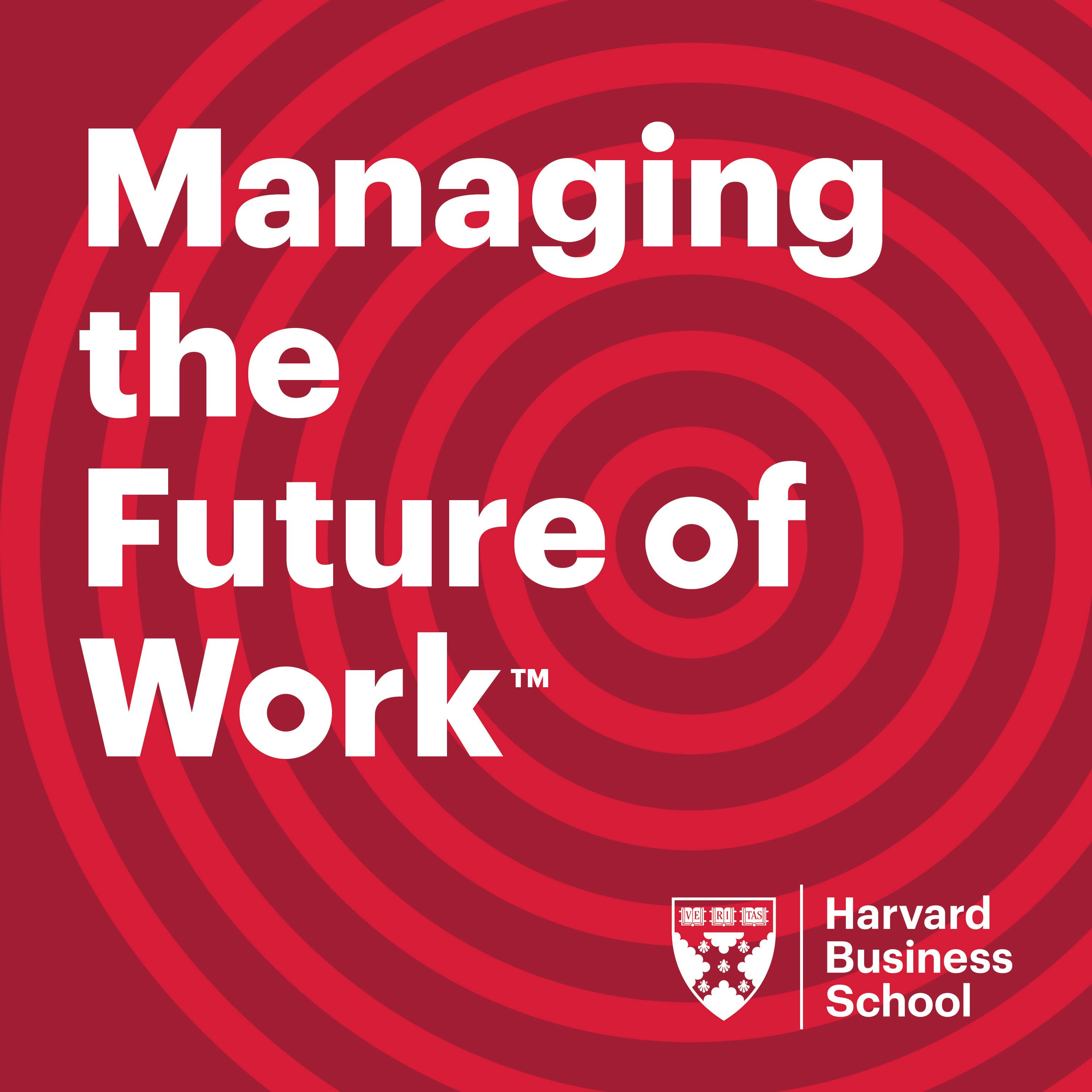

HBS Managing the Future of Work
Harvard Business School
Artificial intelligence. Robotics. The Gig Economy. Globalization. The world is changing at a dizzying pace in ways that will have a profound effect on the economy, jobs and the flow of talent. How will firms cope with the changes ahead and what steps do they need to take today? Each episode features faculty from the world’s leading business school interviewing CEOs, technologists and experts on the bleeding edge discussing how to survive and thrive by managing the future of work.
Episodes
Mentioned books

Mar 22, 2023 • 36min
Delta Dental’s Sarah Chavarria on the value of communication
It’s a simple formula but hard to get right. By tuning in to what’s happening throughout the organization, asking the right questions, and listening carefully, leaders can foster innovation, build consensus and increase engagement.

Mar 15, 2023 • 45min
How to upgrade the community college talent supply chain
What will it take to get two-year institutions and employers on the same page? Joe Fuller joins his Managing the Future of Work co-chair and podcast co-host Bill Kerr to discuss the project’s research on this critical workforce partnership.

Mar 8, 2023 • 32min
Bankable skills: Goldman Sachs CIO Marco Argenti on the emerging tech-business talent model
How is the convergence of banking and technology redefining roles and business models? Marco Argenti went from directing cloud services at Amazon Web Services to the C-Suite of a Wall Street giant. He explains how Goldman taps business-savvy technologists to support strategic decision-making and develop new digital products and services.

4 snips
Mar 1, 2023 • 45min
Guest Appearance: Joseph Fuller on the Q Factor podcast
Managing the Future of Work co-chair and podcast co-host Joseph Fuller on AI's impact on work and hiring, the emerging gig marketplace for high-skills professionals, remote and flexible work, the importance of social skills, and more.

Feb 22, 2023 • 34min
Mark Peters: How altruistic employee assistance pays off
Beyond a paycheck, how much do employers owe their workers? A business alliance focused on employee assistance has had success in helping employees manage their lives and improve their prospects. Mark Peters, CEO of his family business, Butterball Farms, and co-founder of employee assistance nonprofit The Source, talks about the bottom line benefits of an expansive social contract.

Feb 15, 2023 • 29min
Gregory Washington on the relevance of George Mason
The crisis in higher education argues for a more expansive approach to academics, workforce, and business development, according to the head of Virginia’s largest public university. The school’s first African American president talks about leading through Covid, promoting opportunity, and wrestling with the legacy of the institution’s namesake.

Feb 8, 2023 • 35min
Skills engine: An update on Google’s role as training provider
What’s the strategy behind the tech giant’s expanding portfolio of certificate programs and partnerships? Lisa Gevelber, founder of Grow with Google, on boosting prospects for workers with and without college degrees, coordinating with employers to address the skills gap, and enhancing post-secondary institutions’ career-launching capabilities.

Feb 1, 2023 • 31min
Good jobs as good cause: The philanthropy of upward mobility
Rachel Korberg, Executive Director of the Families and Workers Fund, on the collaborative philanthropy model, public-private partnerships, defining good jobs, and the business case for creating more of them

Jan 25, 2023 • 38min
Extra credit: Reach University’s apprenticeship-to-degree model
In combining upskilling through on-the-job training with tailored online courses, Reach helps school districts develop faculty internally. Founder and chancellor Mallory Dwinal-Palisch breaks down the approach, which offers flexible degree programs to existing employees. Could this be a template for other in-demand professions?

Jan 18, 2023 • 36min
AI: The good, the bad, and the transformative
Is it too late to secure the guardrails? More and more businesses are turning to AI for its efficiencies and revolutionary potential, but its proliferation has sparked widespread skepticism and questions about equity, privacy, liability, transparency, and security. AI expert and entrepreneur Manoj Saxena parses the business, policy, ethics, and workforce implications.


